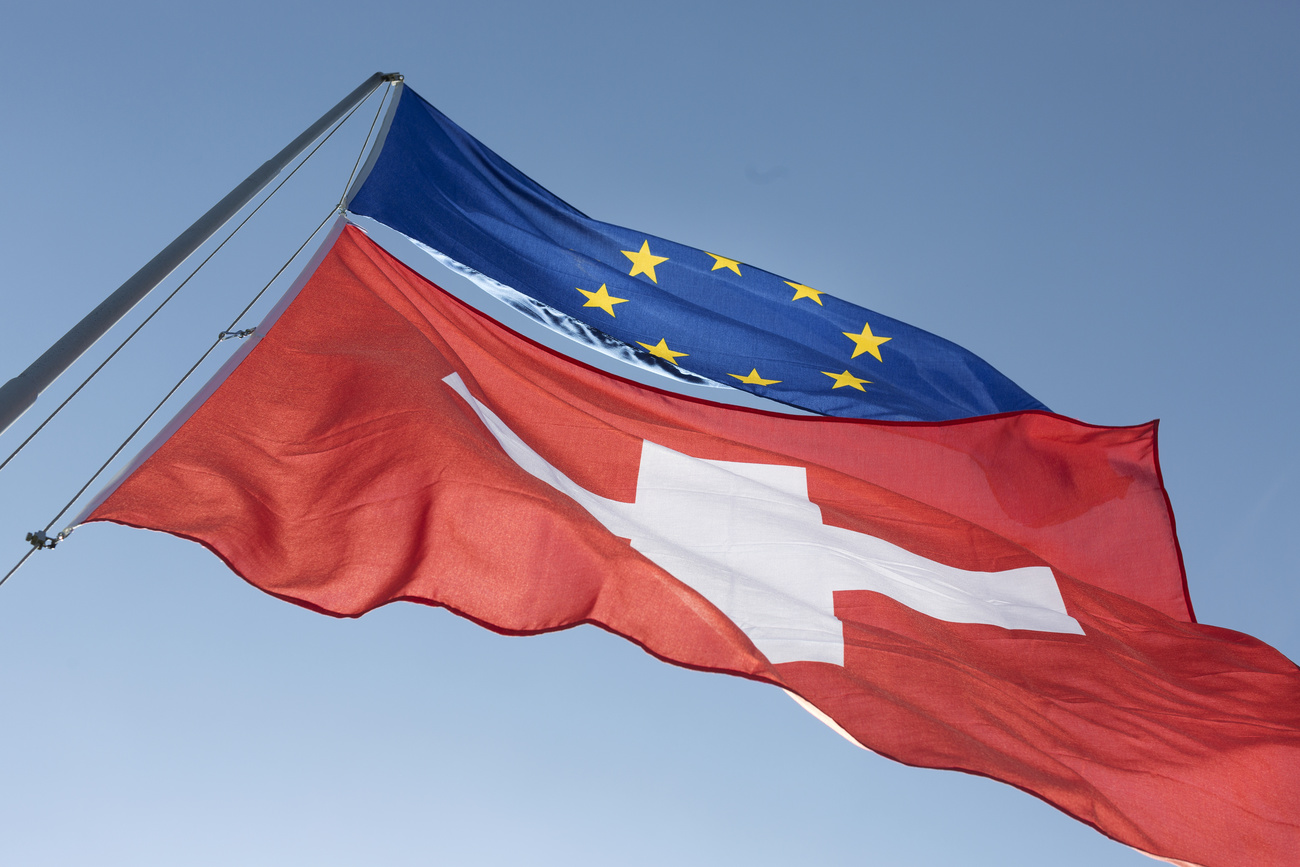
Immigration vote: ‘The People’s Party campaign just hasn’t caught on’

On September 27, the Swiss will vote on an initiative to abolish the free movement of people deal with the European Union. With new concerns on the agenda, however, voters are no longer so het up about the bugbear of immigration, says political analyst Martina Mousson.
Six years ago, as the country prepared to vote on another initiative to curb mass immigration, the tension was palpable. Media was full of fiery debates, conversations were heated, and political campaigning provocative. In the end, the proposal by the Swiss People’s Party was accepted by a slim majority.

Nothing of the sort is being seen now, less than two weeks before a vote on the latest People’s Party proposal, which aims to scrap the free movement of people agreement with the EU. Though the rightwing group – Switzerland’s biggest party – is again trying to raise the spectre of the threat of foreigners, the strategy isn’t working as well as it once did.
Concerns have shifted, explains Martina Mousson, a political scientist at the GfS Bern polling and research institute.
swissinfo.ch: The campaign around the immigration initiative seems drab. Is this also your impression, as a political scientist?
Martina Mousson: The debates are definitely not as fierce as those around previous People’s Party initiatives. The campaign visual [a massive rear end of a European sitting on and squashing Switzerland] is also less provocative than before. In the past, visuals could be more racist – for example, the famous posters of black sheep symbolising foreigners, or those showing crows stealing Swiss passports. This time the issue is less emotive.
It’s also not the first time we are voting on relations with the EU. Polls show that citizens’ opinions are already solidly formed. In this context, it’s more difficult to make an effective campaign.

More
Why Swiss voters will decide again on EU immigration
swissinfo.ch: In 2014, the People’s Party initiative against mass immigration sparked heated debates. What has changed?
M.M.: The context is not the same. In 2014, Europe was in the midst of a major migration crisis. There was a fear of seeing a wave of immigrants arrive, a wave which the country couldn’t absorb. Today, we know that immigration numbers are falling.
Aside from the coronavirus, other issues have taken precedence in public debate, eclipsing the old issue of foreigners. The reform of the pension system is a big concern for a lot of politicians, especially since a solution hasn’t yet been found. The environment has risen up the agenda, as we saw with the Green Party gains in last year’s parliamentary elections.
swissinfo.ch: How has the coronavirus crisis impacted the campaign?
M.M.: The pandemic forced the vote to be put back from May to September. Campaigning had already kicked off in spring, but it then became stretched out over half a year. This unusual [for Switzerland] length of time perhaps meant it lost some momentum. For the parties, it also meant additional costs. And with social distancing measures, it’s more difficult to go out into the streets, to talk to people and distribute flyers. This exceptional situation has played a role.

More
The history of Swiss political posters
swissinfo.ch: Polls by your GfS Bern institute have predicted the initiative will be roundly rejected. Has the People’s Party already accepted it will lose at the ballot box
M.M.: That’s not what the party is communicating, in any case. A lot of members have been mobilised and are speaking out, especially on social media. The People’s Party is doing its best to fuel the campaign – it just hasn’t caught on.
swissinfo.ch: Is the immigration issue, so dear to the People’s Party, no longer popular?
M.M.: You could say something like that. We already saw this trend during the parliamentary elections last year, when the party lost some support. The issue can nonetheless be revived at any moment, if immigration starts to increase again.
swissinfo.ch: Is the party capable of refocussing on other issues?
M.M.: There have always been other issues, but none has worked as well as immigration or relations with the EU. This time, the party tried to make an ecological link, arguing that too much immigration will be harmful for the environment, but this isn’t credible.
At the moment, the People’s Party is focussed on its electoral base – an effective strategy, since it has a stronger internal mobilisation power than other parties. To attract new voters, however, it needs new faces, new issues and new angles.

More
Swiss votes: immigration, fighter jets, families and hunting
swissinfo.ch: In 2014, a few weeks before the vote, it was also predicted that the initiative against mass immigration would fail. In the end it was accepted. Could we see such a reversal again?
M.M.: All indicators point towards a “no” vote. The People’s Party is alone against everyone. However, an unforeseen event could change the situation and create a climate that would lead to a groundswell in favour of the text.
swissinfo.ch: After a long period of popular successes, the People’s Party has been failing at the ballot box in recent years. Is Switzerland’s largest party in decline?
M.M.: I don’t think so. Even if it hasn’t managed to reach its objective of winning over 30% of the electorate, we shouldn’t forget that the People’s Party is still the biggest in Switzerland.
Translated from French by Sophie Douez

In compliance with the JTI standards
More: SWI swissinfo.ch certified by the Journalism Trust Initiative






































Join the conversation!